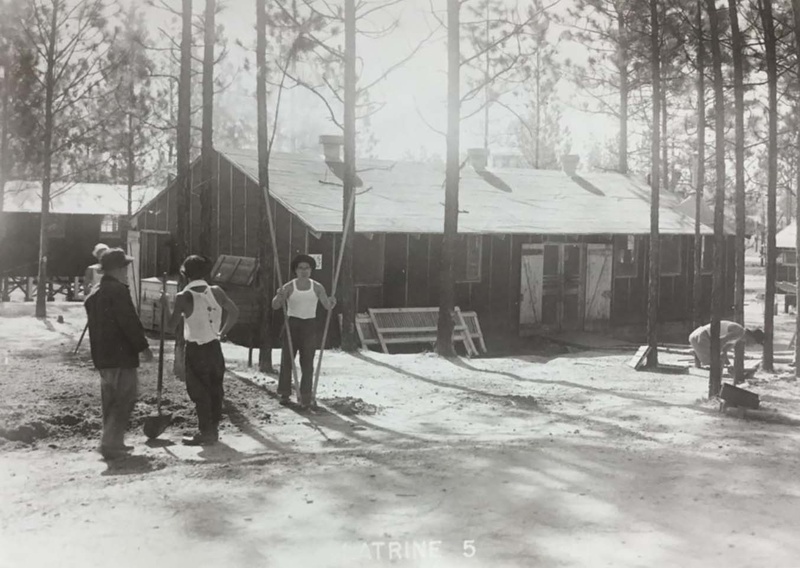Ask any Louisianan about the internment that occurred in the state during World War II and you will most likely hear tales of the German POWs held in various areas across Louisiana. However, most are unaware of the internment of Japanese aliens at Camp Livingston, twelve miles outside of Alexandria, Louisiana. Literature abounds on the experiences of those held in War Relocation Authority (WRA) camps yet information of those men in alien detention facilities is much sparser.
We too were unaware of this piece of Louisiana history. Our journey began with a chance reading of an article on Muslim American children reading aloud the letters of interned Japanese American children alongside actual World War II internment camp survivors. The similarities of racial discrimination and isolation between these two groups were striking. In the article, California Rep. Mike Honda was quoted as saying “If you ask me, 'Could this happen again to youngsters?' The answer is absolutely yes. When we let down our guard as citizens and political leaders ... bad things happen." Being moved by the article, we needed to know more.
Natural curiosity and librarian know-how led us down a research path that eventually led to Camp Livingston. Not a lot of information was to be found, however. As Louisiana residents and academics, we felt a need to rectify this situation by sharing the story of Camp Livingston and the men who were interned there. Our current research efforts have been graciously funded through two grants from the American Library Association that support our research into Camp Livingston and its role as an internment camp. This research will culminate in an openly accessible interactive online research guide focused on the story of Japanese internment during World War II and the specific role of Camp Livingston.
To most compellingly highlight the resources and information uncovered through our research, our website will feature the stories of two families, the Kohara and Miyamoto families, who were tied together through their familial relationship yet were worlds apart due to their drastically different experiences of Louisiana during World War II. The Kohara family resided in Alexandria, a handful of miles away from Camp Livingston, but was not interned during the war. Interestingly, their house was used as a stopping point for family members traveling across the country to visit interned family members in Arkansas camps. It was a welcomed rest stop providing familiar faces, language, and culture. The Miyamotos, cousins to the Kohara family, had a much different experience. Buntetsu Miyamoto, the patriarch of the Miyamoto family and local Buddhist priest and principal at the Haleiwa Jodo Mission Japanese language school, was taken from his home in Haleiwa, Hawaii the day of the attack on Pearl Harbor. He made the long and arduous journey to Camp Livingston where he was interned for many months as an enemy alien. His family was relocated to the family internment camp in Crystal City, Texas.
Through interviews with Mrs. Kohara’s daughter Marion and Mr. Miyamoto’s son Clifford, we were able to piece together this tragic history. These stories are 76 years old, which seems like a lifetime ago, but remain vibrant memories for those who lived through the experience and resonant strongly in today’s political environment. We believe that this research guide will demonstrate the power and knowledge contained within cultural institutions as champions of social justice and memory which remains critically important today. The ability to excavate and highlight these stories is an important tool for remembrance, education, and prevention of repeating similar actions today.
In order to supplement these oral histories, we have conducted research at the National Archives and Library of Congress in Washington, DC. From our time at the National Archives, we were able to locate original documentation pertaining to Camp Livingston. The most important document that supports this project is the camp rosters which list the names and dates of birth of all internees within the camp. We are writing this article in the hope that someone will have information on one of these men included within the rosters. If so, we ask that you contact us to tell your family’s story so that we can compile a clearer picture of Camp Livingston, the experience of the internees, and help to share this story with everyone.
The camp rosters and contact information are available here.
© 2017 Hayley Johnson




